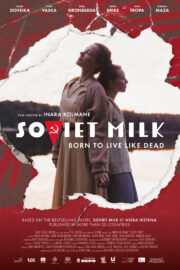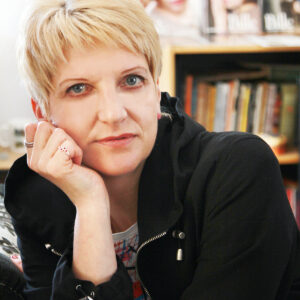Soviet Milk
In her conflict with the totalitarian regime, Astra, an ambitious doctor, loses literally everything: her career, her will to live, even her maternal instinct to nurse her own baby. Daughter Nora nevertheless becomes Astra’s greatest support, and in the process she learns to survive even in the repressive system of the Soviet regime. Together with her intersex friend, Jesse, Nora helps Astra fight her depression.
Cast
- Astra
- Maija Doveika
- Nora
- Rūta Kronberga
- Astra,young
- Elīna Vaska-Botere

Soviet Milk
Ināra Kolmane
- Fiction
- Production Country / Year
- Latvia, Belgium 2023
- Language
- lv., ru. OF m. engl. UT
- Format
- DCP, Color, 112min
2.39:1, Discrete 5.1
- Original Title
- Mātes Piens
Director & Crew

Ināra Kolmane
Born in 1961 in Riga/Latvia. Studied at the St. Petersburg Film Academy. Active as a director.
Filmography
| 2001 | Poco a poco…little by little | Dokumentarfilm | |
| 2002 | A world apart | Dokumentarfilm | |
| 2006 | My husband Andrei Sakharov | Dokumentarfilm | |
| 2009 | Nude | Dokumentarfilm | |
| 2010 | Controversial history | Dokumentarfilm | |
| 2012 | Age of delirium | Dokumentarfilm | |
| 2015 | Ruch and Norie | Dokumentarfilm | |
| 2018 | Double life. Sex in the USSR | Dokumentarfilm | |
| 2023 | Soviet milk | Spielfilm | 2023 |
“The story reveals in a deeply compassionate way how human nature collides with the totalitarian Soviet regime. My film concept is based on the reflection of interpersonal and social relations as well as historical processes, which are revealed through the lives and viewpoints of two women. By tracing how the restrictions and contradictions of a totalitarian regime shape people's lives and actions, the (im)possibility of personality development under this regime becomes clear.
These motifs are reflected throughout the film; they form its ideological framework and thematize the conflict between the human desire for free self-realization and development and the tendency of the ruling political regime’s omnipresent control.
The film consists of two chapters, each showing a different point of view—the mother’s and the daughter’s. In this way, it is easy to see the absurd Soviet system and the fates of the people through the eyes of an adult who has lost her ideals, but at the same time from the perspective of a child. Each chapter contains events from different periods of time, showing, on the one hand, the mother's powerlessness as an individual in the face of the regime and, on the other hand, the story of a growing child with her faith in the future.”
Ināra Kolmane
- Music Composer
- Raimonds Tiguls
- Producer
- Jānis Juhņēvičs
- Cloé Garbay
- Writer
- Arvis Kolmanis
- Sound
- Arturas Pugačiauskas
- Editor
- Michal Lansky
- Director of Photography
- Rolandas Leonavičius